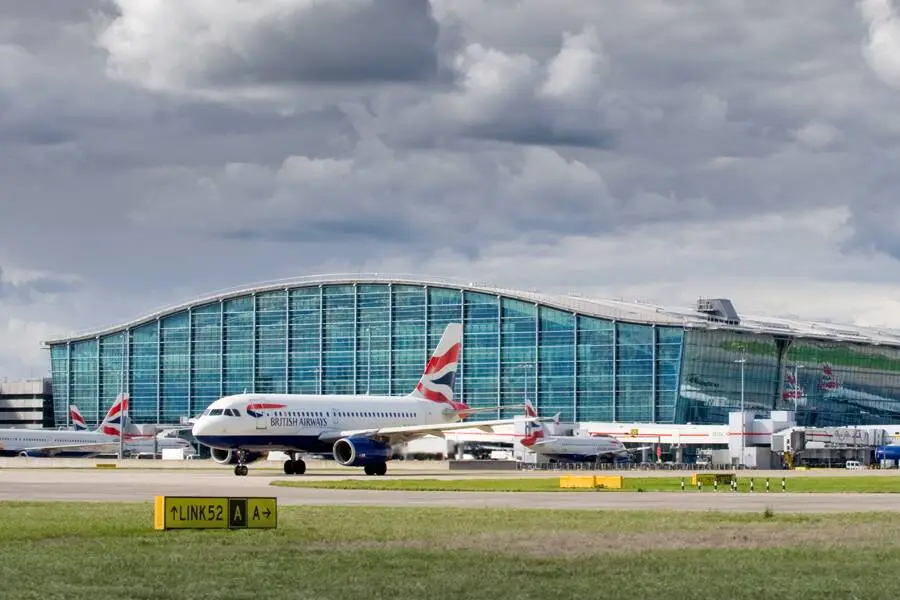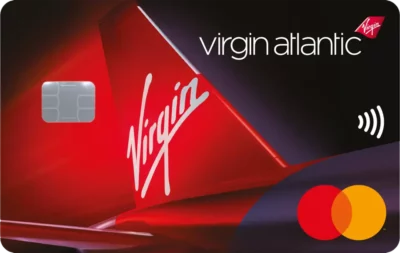Which airlines have the most Heathrow airport take-off and landing slots?
Links on Head for Points may support the site by paying a commission. See here for all partner links.
Which airlines have the most take off and landing slots at London Heathrow Airport?
We thought we’d take a look. We have taken the data from Airport Coordination Ltd, which runs the slot allocation programme. The numbers below are for the full winter season which runs from late October until late March (22 weeks).

Here are the 25 airlines with the most slots at Heathrow
‘Slots held’ is the total number of individual slots for the entire winter flying season divided by the number of weeks.
Two slots are required per flight. Virgin Atlantic, for example, has 392 slots which equals 196 return flights per week.
| Airline | Slots held | % of total |
|---|---|---|
| British Airways | 4,779 | 51.84% |
| Virgin Atlantic | 392 | 4.25% |
| Lufthansa | 290 | 3.15% |
| Aer Lingus | 288 | 3.12% |
| United Airlines | 278 | 3.02% |
| American Airlines | 270 | 2.93% |
| Scandinavian Airlines | 216 | 2.34% |
| Swiss International Air Lines | 168 | 1.82% |
| Delta Air Lines | 164 | 1.78% |
| Eurowings | 164 | 1.78% |
| KLM Royal Dutch Airlines | 144 | 1.56% |
| Air Canada | 112 | 1.21% |
| Iberia | 112 | 1.21% |
| Air France | 98 | 1.06% |
| Qatar Airways | 90 | 0.98% |
| Turkish Airlines | 88 | 0.95% |
| Emirates | 84 | 0.91% |
| TAP Air Portugal | 76 | 0.82% |
| Cathay Pacific | 74 | 0.80% |
| Etihad Airways | 70 | 0.76% |
| Finnair | 58 | 0.63% |
| Singapore Airlines | 58 | 0.63% |
| Air India | 56 | 0.61% |
| Austrian Airlines | 56 | 0.61% |
| ITA – Italia Trasporto Aereo | 52 | 0.56% |
Unsurprisingly, British Airways comes out on top with over 50% of all slots allocated (the grand total of slots across all airlines is 9220 per week, so 658 departures per day). This is an order of magnitude more than Virgin Atlantic which has a meagre 4.25% in comparison.
The list doesn’t adjust for common ownership. In reality, Lufthansa Group has many more slots than it seems because they are listed by individual airline, rather than the group as a whole. In theory you could add in SWISS, Eurowings and other Lufthansa Group airlines to their total.
Who is a likely taker of slots which airlines do not want to fly?
As it happens, we know which airlines are keen on Heathrow slots because new requests are published by Airport Coordination.
The largest demands for fresh slots for Winter 2023 were from British Airways (154 per week), Loganair (76), ITA (68), Aurigney (56), Virgin Atlantic (56) and Emirates (48). These would be slots which come up from airlines forfeiting their existing ones due to non-use.
British Airways and Loganair succeeded in gaining some new slots. New airlines include LATAM Peru, which is launching daily direct flights to Lima this winter, as well as Tunisair and Croatia Airlines. Not all airlines which receive slots end up using them, as some require at least one daily slot pair to make it worthwhile.
Slot allocation by alliance
Let’s take a look at Heathrow slot allocation by airline alliance. Looking at all airlines, oneworld comes out on top with 60% of the slot allocation. This isn’t surprising given that British Airways, a oneworld member, is the single largest Heathrow slot holder.
Star Alliance trails with 18% whilst SkyTeam is barely in the same league with just over 10%. This is a substantially better performance than in previous years, before Virgin Atlantic joined SkyTeam.
Heathrow slot allocations by airline alliance:
| oneworld | 59.8% |
| Star Alliance | 18.2% |
| SkyTeam | 10.7% |
The numbers look very different when you take British Airways out of the equation:
Heathrow slot holders by alliance, without British Airways:
| Star Alliance | 37.7% |
| SkyTeam | 22.3% |
| oneworld exc BA | 16.6% |
In such a scenario, Star Alliance has the same number of slots as its competitors combined.
The numbers vary again when you take into consideration Aer Lingus and Eurowings, who are not officially part of an alliance but are strongly affiliated to an alliance member. Aer Lingus is oneworld focussed given its ownership by IAG. Eurowings is a subsidiary of Lufthansa and therefore closely aligned with Star Alliance:
Heathrow slot allocations based on alliance and core partnerships:
| oneworld | 60.0% |
| Star Alliance | 19.0% |
| SkyTeam | 10.2% |
PS. If you are not a regular Head for Points visitor, why not sign up for our FREE weekly or daily newsletters? They are full of the latest Avios, airline, hotel and credit card points news and will help you travel better. To join our 70,000 free subscribers, click the button below or visit this page of the site to find out more. Thank you.

How to maximise your miles when paying for flights (July 2025)
Some UK credit cards offer special bonuses when used for buying flights. If you spend a lot on airline tickets, using one of these cards could sharply increase the credit card points you earn.
Booking flights on any airline?
The American Express Preferred Rewards Gold Credit Card earns double points (2 Membership Rewards points per £1) when used to buy flights directly from an airline website.
The card comes with a sign-up bonus of 20,000 Membership Rewards points. These would convert to 20,000 Avios or various other airline or hotel programmes. The standard earning rate is 1 point per £1.
You can apply here.

American Express Preferred Rewards Gold Credit Card
Your best beginner’s card – 20,000 points, FREE for a year & four airport lounge passes Read our full review
Buying flights on British Airways?
The British Airways American Express Premium Plus Card earns double Avios (3 Avios per £1) when used at ba.com.
The card comes with a sign-up bonus of 30,000 Avios. The standard earning rate is 1.5 Avios per £1.
You do not earn bonus Avios if you pay for BA flights on the free British Airways American Express Credit Card or either of the Barclaycard Avios Mastercards.
You can apply here.

British Airways American Express Premium Plus Card
30,000 Avios and the famous annual Companion Voucher voucher Read our full review
Buying flights on Virgin Atlantic?
Both the free Virgin Atlantic Reward Mastercard and the annual fee Virgin Atlantic Reward+ Mastercard earn double Virgin Points when used at fly.virgin.com.
This means 1.5 Virgin Points per £1 on the free card and 3 Virgin Points per £1 on the paid card.
There is a sign-up bonus of 3,000 Virgin Points on the free card and 18,000 Virgin Points on the paid card.
You can apply for either of the cards here.

Virgin Atlantic Reward Mastercard
3,000 bonus points, no fee and 1 point for every £1 you spend Read our full review

Virgin Atlantic Reward+ Mastercard
18,000 bonus points and 1.5 points for every £1 you spend Read our full review



 Rhys
Rhys 





Comments (51)